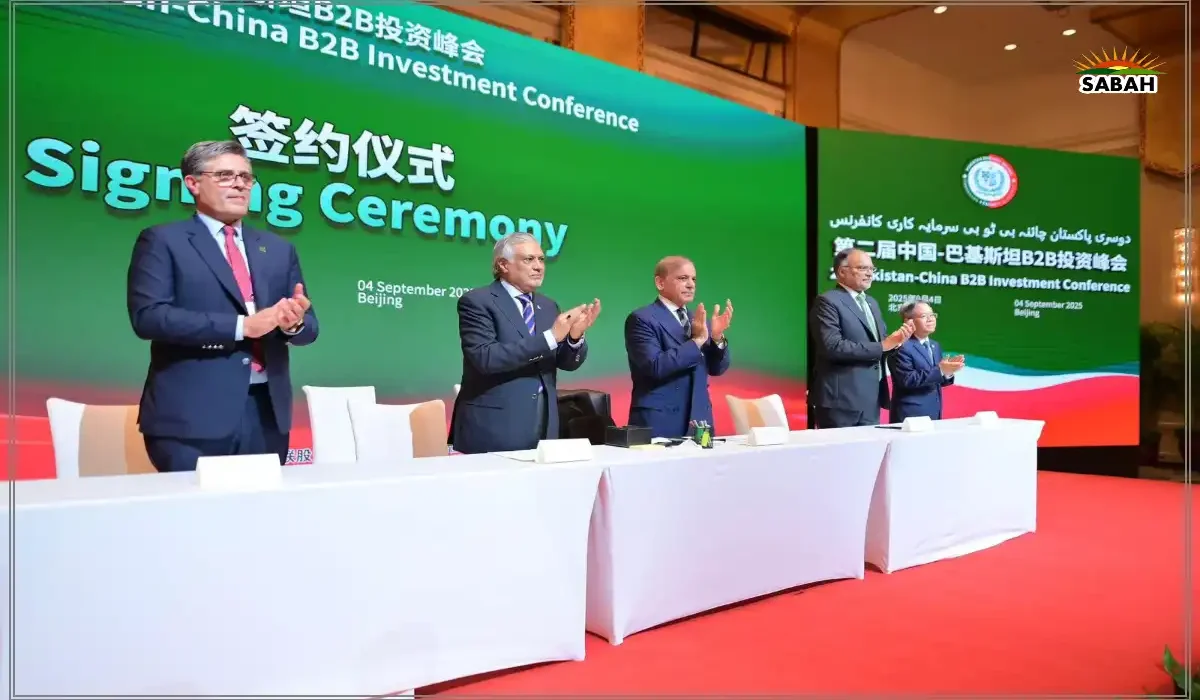Beijing: The Pakistan–China B2B Investment Conference in Beijing concluded with the signing of agreements worth USD 8.5 billion, signaling a major boost in bilateral economic cooperation. The event, reported by China Economic Net (CEN), marked a significant step toward strengthening trade and industrial partnerships between the two countries.
The conference, held on September 4 at the China World Hotel, was the second edition of the forum and brought together leading business figures from Pakistan and China. Prime Minister Shehbaz Sharif, who addressed the gathering, hailed the outcome as a “long march of economic growth.” He assured participants that he would personally oversee facilitation for investors, stressing that unnecessary delays in approvals would not be tolerated.
Out of the total commitments, USD 7 billion were finalized through Memorandums of Understanding (MoUs), while USD 1.54 billion was secured in joint ventures. The agreements cover a wide range of sectors including agriculture, textiles, electric vehicles, solar power, healthcare, chemicals, minerals, and steel.
Pakistani delegates — including Osama Abid of Al-Hammd International, Engr. Asad Ahmed of PMDC, and Kashif Mehtab Chawla of Al-Karam Textiles — highlighted Pakistan’s advantages such as abundant raw materials, a competitive workforce, and GSP+ trade access to Europe. They also pointed out challenges in regulation, outdated machinery, and logistical infrastructure.
On the Chinese side, Ren Hongbin of the China Council for the Promotion of International Trade (CCPIT) and Xu Guimin of Zhongjing Kehui emphasized that leveraging China’s industrial know-how in Pakistan could generate mutual benefits, provided facilitation and streamlined processes continue.
To address investor concerns, Pakistani officials highlighted the establishment of the Special Investment Facilitation Council (SIFC), designed to accelerate approvals and guarantee state-level support for foreign investors.
Participants agreed that beyond the financial commitments, the agreements represent a long-term shift toward positioning Pakistan as a regional manufacturing hub, driven by Chinese capital, technology transfer, and industrial cooperation.

